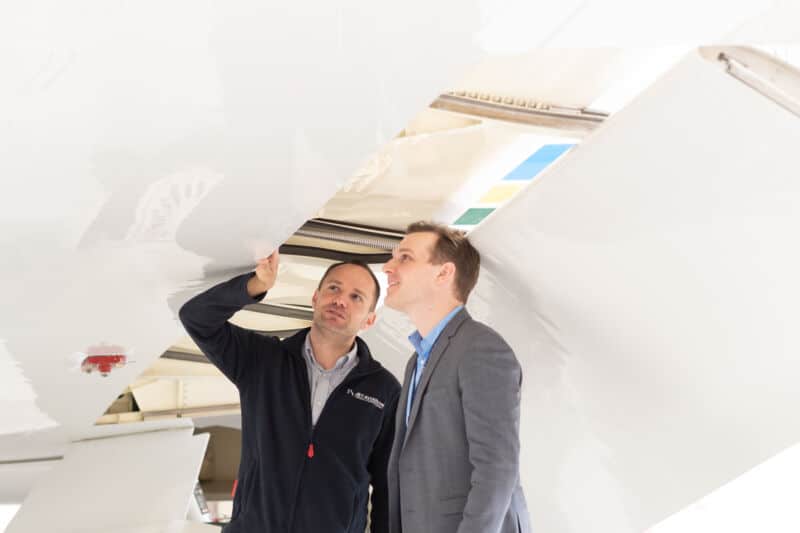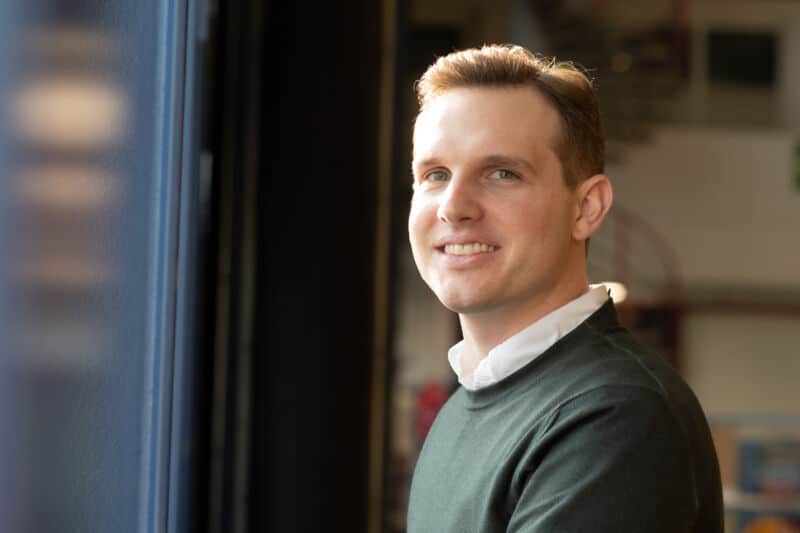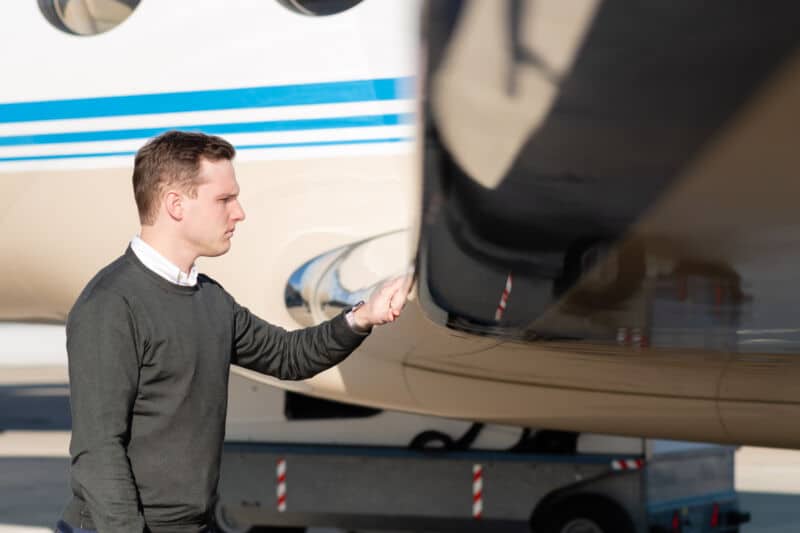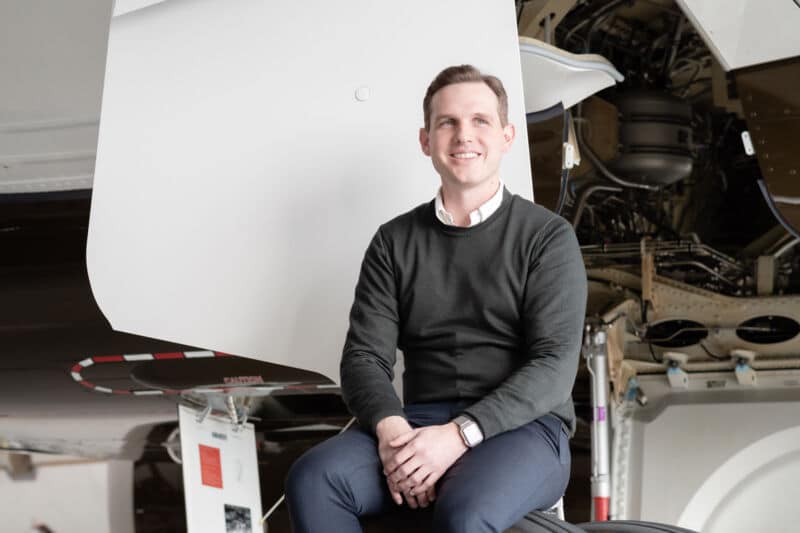Journey at Jet Aviation: Fabian Janka
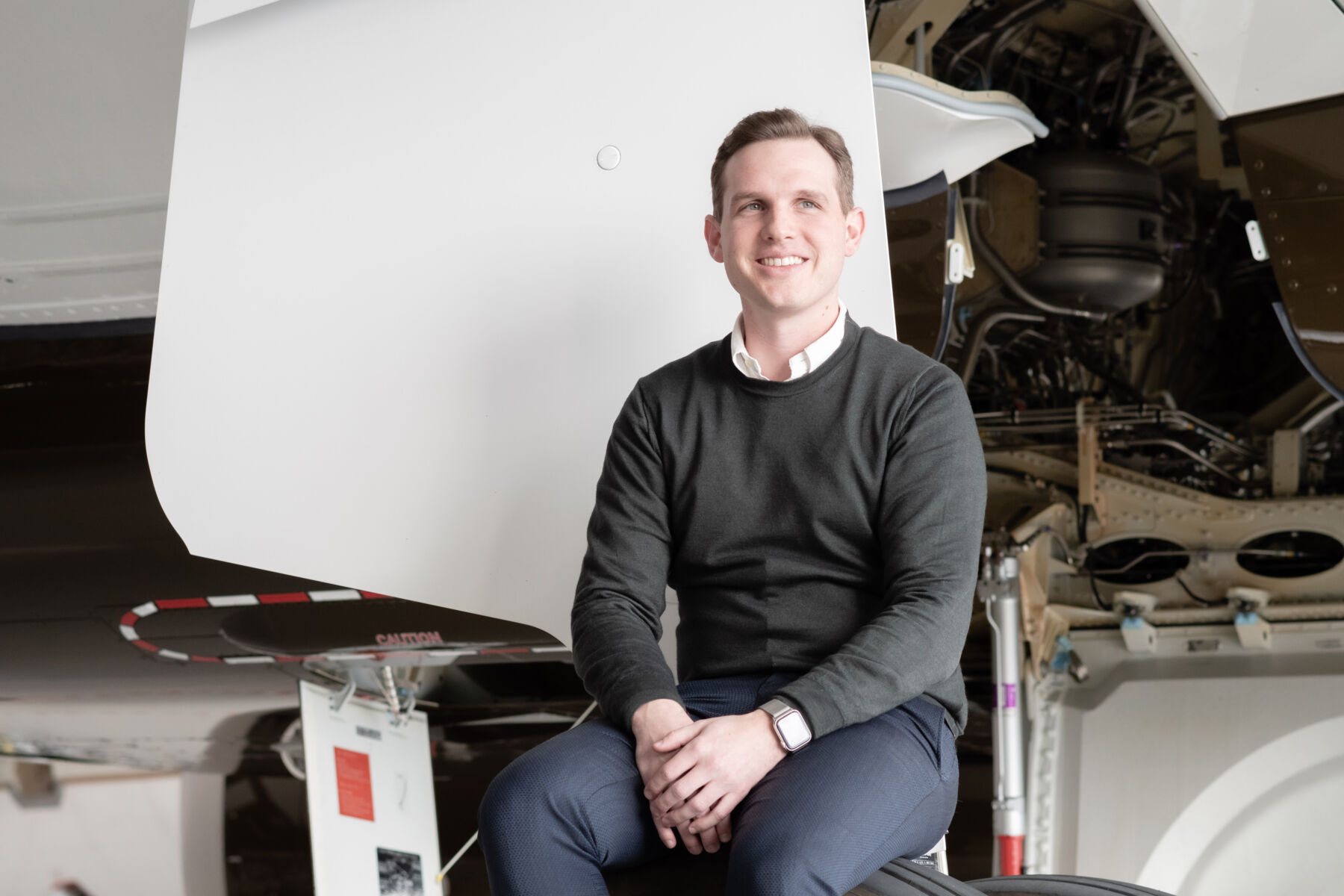
Hi Fabian! We are excited to hear more about your journey through Jet Aviation. Could you start by sharing a little about yourself and your background in aviation. Why did you choose to join the aviation industry?
I had the privilege of growing up abroad in Asia and the United States, which allowed me to travel frequently and experience the aviation world from a young age. It became second nature and captivated my imagination, giving me the spark to pursue a career in aviation. Initially targeting a career as a pilot, I had the opportunity to spend time at an MRO in Brussels and a component manufacturer and repair station during school summers, altering my path definitively. Instead of becoming a pilot, I decided to pursue aerospace engineering studies instead to learn what makes aircraft fly, and what keeps them flying.
What is your story of coming to work at Jet Aviation?
Toward the end of my Master studies in Toulouse, I was preparing for my career start in the industry and actively searching for opportunities. I encountered a job opportunity at Jet Aviation labeled “Junior Sales Engineering Trainee.” While the business aviation world was entirely unknown to me, the description of the role appeared like the perfect fit for someone with my background and studies. So, I applied, passed three rounds of interviews and gladly accepted to join Jet Aviation when offered the role.
Could you describe what a day in your role is like for you?
There is almost no standard day in our line of work. Catching up on emails before arriving to the office between 7.30 and 8.00, the day really starts with the morning briefing for our Business Jet project between 8.00 and 8.45 where the critical items for each project for the day are raised. I then bring these to the MRO leadership team. After the MRO leadership brief, I split my time responding to emails and actioning the critical items to be resolved that day so our projects stay on track. Once accomplished, the rest of the day contains any of the following:
Customer escalation calls or meetings
Financial reviews of past or ongoing projects
Review of quotations in the pipeline for future events
Assignments of project managers to confirmed projects
Ad hoc support to the team
Alignment with the other directors
Other actions to improve our efficiency and effectiveness in the future
You joined us as a trainee originally, how does that compare to the work that you do today?
During my internships, I received a project assignment from my tutor along with a timeline for accomplishment. These usually were projects that my tutor was charged with accomplishing, and it was delegated to me for execution. For instance, at Stelia Aerospace I carried out a static stress and damage tolerance investigation of the A350 XWB lower unit panel for a repair scenario that would require the replacement of a full composite panel replacement. This project was part of a deliverable my tutor had been assigned. In close collaboration with her, I presented my conclusions that were brought to Airbus to obtain future business for Stelia Aerospace.
In my role today, I continue to carry out projects with the intention of optimizing our performance or finding new ways to improve our work. In that manner, the approach has not changed too much. However, in terms of accountability, there is significantly more weight on my deliverables today than as an intern. I am not only accountable for my work, but the work of all individuals in my team. This is a key difference.
On a related note, my role today has given me the opportunity to become a tutor myself. I have welcomed an intern into my team who is pursuing a mission that I have drafted, and whom I am supporting, along with the team, to help us improve our work and provide him with an experience-filled internship to finalize his studies and perhaps shape his way forward.
Have you taken any lessons from your internship into your current position as a manager?
My internship was a time where everyone in the team was more experienced than I was at effectively everything they were doing. Hence, I was obliged to approach my colleagues for support to carry out the tasks I was assigned – gradually becoming more autonomous thereafter. While I have grown experienced myself, the lesson applies to my current role as manager just the same: never hesitate to seek support elsewhere and maintain the willingness to learn from others to improve your own performance. The vice versa applies, too, as this lesson also compels me to support those who come to me for advice.
How did your role as an intern prepare you or influence you for your role as a manager years later?
Intern and manager are two vastly different roles. I have taken learnings with me of course. The things that were important to me as intern, remain important today. For example, autonomy to perform my work (and empowerment) as well as accessibility to my manager when I do need support. Today, my goal is to provide my team the tools to take decisions and be successful on their own as far as possible. In turn, I make sure that I maintain an open-door policy and find time for them as required.
“The most rewarding benefit of my career has been the learnings and knowledge I’ve picked up from the various roles I have had over the past years…Each step has rewarded me with insights that more easily drive my decision-making and actions in my current role. Most important to me are opportunities to continue to learn and evolve.”
What has been the greatest challenge in your career so far?
My biggest challenge has been the transition from an individual contributor role to managing a team overnight. This change happened in a peak workload phase, and it meant that I now held managerial duties to support a team while also retaining project manager responsibilities to deliver various running projects for a time. While it has not always been smooth sailing and called for many extended days, I’m proud to have been given this challenging opportunity and grateful to my team for their strength, stamina and resilience throughout this time.
And what have you found to be the most rewarding, or the biggest benefit, from your career so far?
The most rewarding benefit of my career has been the learnings and knowledge I’ve picked up from the various roles I have had over the past years. Starting out as a trainee and gaining insights into what matters on site, to working closely with our customers upfront, understanding their priorities, to now ensuring that we deliver on our commitments to our customer when their aircraft is on site with us. Each step has rewarded me with insights that more easily drive my decision-making and actions in my current role. Most important to me are opportunities to continue to learn and evolve.
Do you work within a team?
I believe that we are one big team at Jet Aviation as we all share the same goal: to deliver a product of the highest quality and ensure the highest customer satisfaction. Narrowing it down, I work with two teams directly in my day to day. My team of project managers and my direct colleagues each of whom leads an organization vital to ensuring our joint success. There are plenty benefits that I find working within a team. For example, sharing experience on how to manage specific situations, developing best practices to work more efficiently, challenging each other’s assumptions to advance the status quo, or simply providing support in stressful moments to name a few.
???????
Do you have any advice for those who are starting as apprentices or interns and wanting to progress their career?
As an intern you are there to learn and grow your personal future. So, focus on learning and understanding what drives the people and organization around you. Get to know the people and do not hesitate to ask questions. Then keep asking the questions that drive you the most. You will learn and see how people react. As intern, you come into a company with a fresh set of eyes and your tutor may just appreciate viewpoints that are not colored by the status quo.
Any final comments?
Finding talent is difficult and never self-evident. Growing talent through internship opportunities or similar programs is key to identifying the right talents for the right roles and thereby securing our future. I can only encourage all my colleagues to participate in internship programs.
